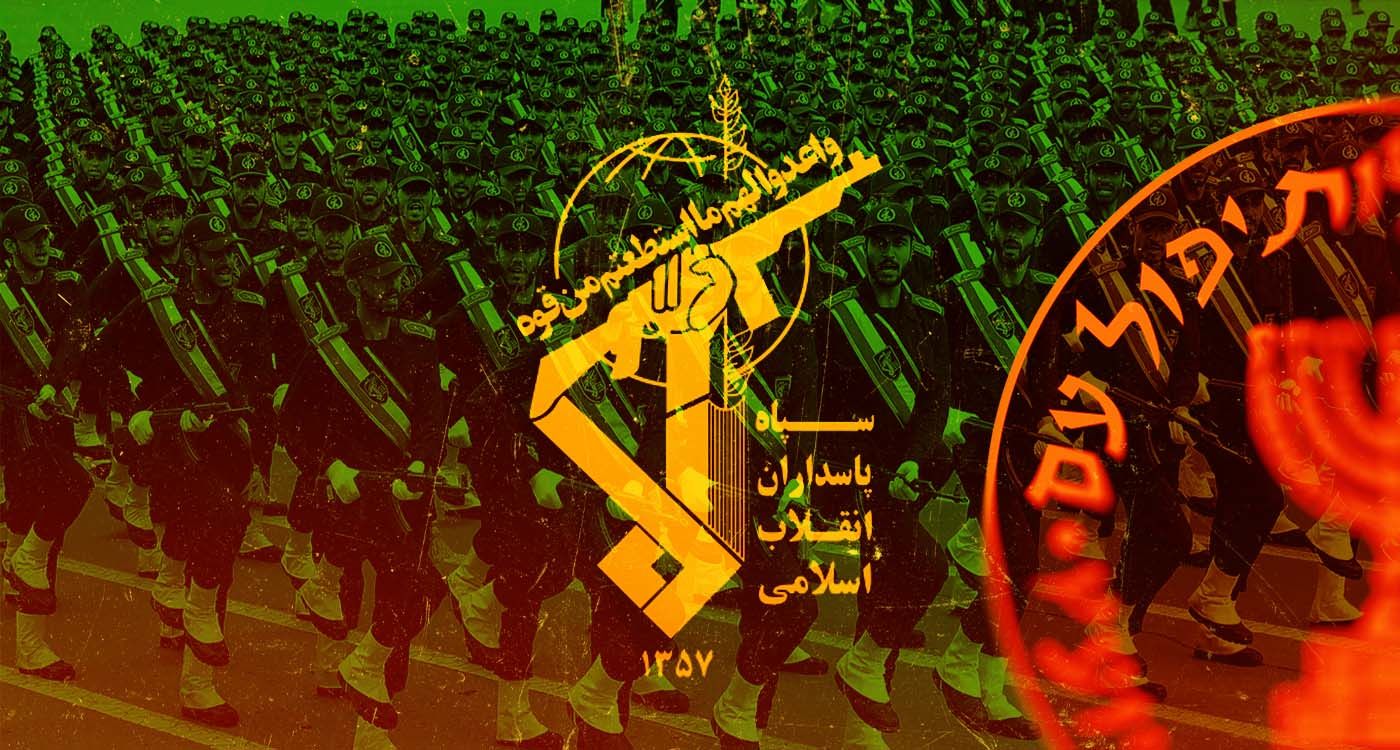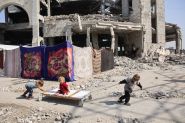- Home
- Middle East
- Mossad’s Reach: How Israel Penetrated Iran’s Inner Sanctum

Mossad’s Reach: How Israel Penetrated Iran’s Inner Sanctum ©This is Beirut
In Iran, the fortress walls are cracking. For months, discreet acts of sabotage, massive data leaks, and explosive revelations about double agents have shaken the very core of the regime. Behind these surgically precise operations, all evidence seems to point to the Mossad. But beyond the strength of its adversaries, internal fragmentation and paranoia are exposing Tehran to its worst enemies—sometimes already seated at the table of power.
In June 2025, Iran was struck by a wave of operations of an unusual kind: targeted sabotage, “accidental” explosions, digital disruption, targeted assassinations…
The whole affair bears the hallmarks of a hybrid offensive, silent yet devastatingly effective. But beyond technological prowess, the structural collapse of a paranoid regime stands out. “It’s no surprise,” notes David Rigoulet-Roze, researcher at the French Institute for Strategic Analysis (IFAS). As early as 2021, former Intelligence Minister Ali Younessi publicly warned about the presence of Israeli agents inside the state apparatus: “The Mossad has penetrated numerous government departments over the past decade, to the point where every senior official in the country must fear for their life.”
Similarly, in September 2024, former president Mahmoud Ahmadinejad, although from the ultraradical camp, revealed in an interview with CNN Türk that the head of the IRGC’s counterintelligence had in fact been a double agent: “The top official in charge of countering Israel’s intelligence activities in Iran was himself a Mossad agent.”
Ahmadinejad further alleged that 20 other members of that unit were Mossad operatives, accusing them of stealing Iranian nuclear documents and assassinating nuclear scientists. Ahmadinejad served two terms as president until 2013. His successor, Hassan Ruhani, had Ali Younessi (former Intelligence Minister) as his chief of staff. In hindsight, these spectacular revelations take on particular significance amid the current confrontation between Iran and Israel, especially over Iran’s nuclear program and Tehran’s regional activities.
Fear has gripped the top echelons of the security apparatus, for good reason: this infiltration is not recent. Back in 2019, an episode that went largely unnoticed was seismic in scale. General Ali Nasiri, head of the IRGC unit in charge of protecting Iran’s elites (including the Supreme Leader), abruptly left the country after a dispute with the IRGC’s intelligence chief. He reportedly sought asylum at a US embassy in the Gulf, taking with him highly sensitive documents.
A Fragmented State at War with Itself
Infiltration has been made all the easier by the deep divisions within the security establishment. “There is a constant rivalry between the Ministry of Intelligence services (VAJA, known by its former acronym VEVAK, Vezārat-e Ettelā'at va Amniat-e Keshvar) and those of the IRGC led by Hussein Taeb (Sazman-e Ettela’at-e Sepah) since 2009. But Taeb is not the only one directly linked to the Supreme Leader’s office, notably the Vali-e Amr unit, which is directly responsible for Ayatollah Khamenei’s security,” Rigoulet-Roze explains. Each plays its own game, making coordination impossible; thus leading to an ideal breeding ground for multiple, simultaneous infiltrations.
A string of defections has only deepened the sense of chaos: several high-ranking IRGC officials have disappeared or fled, with no official explanation given.
Hybrid Warfare: A Battle of Minds, Not Missiles
“This kind of operation is almost impossible to trace today,” says a cybersecurity expert who requested anonymity. According to him, the Mossad has taken advantage of “over-information,” a digital saturation where data volumes are so huge that tracing breaches is almost impossible. “The attack surfaces are immense; servers can be compromised without anyone noticing.”
This new form of conflict moves beyond traditional battlefields. Military superiority no longer guarantees victory, technological intelligence does. “This is not unique to Mossad, but they are at the forefront of this doctrine. Today, it’s not the richest or best-armed who wins, but those with the sharpest minds.”
No need for regional proxies or on-the-ground accomplices: next-generation encrypted communications make it possible to operate from the other side of the world. “Internet has made the world very small,” the expert remarks.
The Iranian regime, habitually secretive, has of course denied any infiltration. Today, it is impossible to know whether certain warning signs like cyber leaks, suspicious behavior, and internal anomalies, were deliberately ignored or simply overlooked. One thing is certain: the security machine is more focused on watching itself than on protecting the population or infrastructure.
A Mocking Public Opinion, a Weakened Regime
Authorities have tried to justify fires in refineries, explosions in IRGC bases, and airport breakdowns with excuses ranging from dubious to absurd: “controlled grass burning,” “electrical overload,” “weather problems.” Such justifications are laughed at openly in the streets of Tehran, where the public is fully aware of what is playing out in the shadows.
Israel’s Unit 8200, the country’s cyber warfare arm, is believed to have erased critical data from major banks, including Sepah Bank, Pasargad Bank, and military-linked Kosar and Ansar banks, as well as from government administrations. David Rigoulet-Roze calls it “a show of force without visible traces, one that disrupts without the need for bombs.”
The post-2022 climate shifted the equation. Since the “Woman, Life, Freedom” uprising, an entire generation has awoken to the collapse of the social contract. Large segments of Iran’s youth are now connected to the outside world via VPNs and in some provinces through Starlink. This creates fertile ground for discreet collaboration with foreign intelligence services, as well as for the rise of a digital dissidence that is impossible to contain.
Iran is no longer the secure fortress it pretends to be. The Mossad has not merely struck facilities; it has exposed the cracks in a system that once saw itself as untouchable.
The regime’s heart now beats to the rhythm of distrust, fear, and suspicion. Its enemies are no longer at the gates, but embedded in its ministries, special units, and computer networks. And sometimes, the keys are in their hands.
Read more




Comments